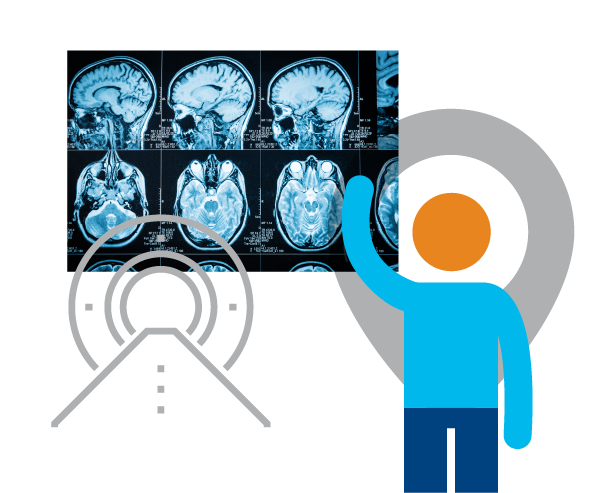Are Breast Cancer Lumps Painful?
One of the most common misconceptions is that breast cancer lumps are always painful. However, the reality is quite the opposite. Many breast cancers are actually painless, especially in the early stages. This is why regular screening and self-examinations are crucial in detecting it early.
Can Breast Cancer be Painful?
Some cases may be associated with pain, but this symptom is not universal. Pain might occur if the tumour presses against nerves or surrounding tissues. However, it’s important to note that the absence of pain does not rule out the possibility of breast cancer.
How Breast Cancer is Diagnosed
The process typically involves a combination of screenings, including mammograms, ultrasounds, and potentially MRI scans. If they detect an abnormality, they perform a biopsy to analyse the tissue and confirm the presence of cancerous cells.
What Breast Cancer Looks Like
It can manifest in various forms, ranging from small, confined tumours to larger, more aggressive growths. Understanding the appearance of breast cancer on imaging studies is a crucial aspect of accurate diagnosis.
Types of Breast Cancer
It is not a one-size-fits-all condition. There are several distinct types, including
- Ductal carcinoma in situ (DCIS),
- Invasive ductal carcinoma (IDC),
- Invasive lobular carcinoma (ILC),
- Metastatic Breast Cancer
- Triple-negative breast cancer
- Paget’s disease of the breast and more.
Each type requires a tailored approach to treatment, emphasising the importance of accurate diagnosis.
Why Early Detection Matters:
Early Detection can make a world of difference. Here’s why:
Better Treatment Options
Discovering cancer at an early stage often means gentler, more effective treatments.
More Choices
Early-stage breast cancer provides a range of treatment options tailored to your unique needs.
Higher Survival Rates
Catching it early significantly boosts the chances of successful treatment.
Less Invasive Interventions
Early detection can lead to less aggressive surgeries and better preservation of natural breast tissue.
Key Steps for Early Detection:
Breast Self-Exams: Regular self-exams play a vital role in identifying changes in your breast tissue. By familiarising yourself with the texture, shape, and size of your breasts, you can quickly spot any unusual developments.
Clinical Breast Exams: Schedule regular clinical breast exams with a healthcare professional. These exams aim to identify any abnormalities that self-exams alone might not notice.
Mammograms: Mammograms are X-ray images of the breast that can detect even the tiniest changes in breast tissue. Women over 40 should get regular mammograms. If a family has a history of breast cancer, they may need earlier screening.
Ultrasound: Ultrasound allows for “real time” imaging and helps diagnose symptoms and doctors often perform it alongside a mammogram to gather more information. For example, it can help in the diagnosis of cysts. It is also useful as a means of performing a biopsy.
Magnet Resonance Imaging (MRI): MRI uses a magnetic field to create images of the breast tissue. It does not use radiation or x-rays like a mammogram does.
Empower Yourself: Take Charge of Your Health
Knowledge is the greatest weapon in the fight against breast cancer. Arming yourself with information about breast cancer is the first step towards early detection and effective treatment.
If you have any concerns or questions, don’t hesitate to reach out to your healthcare team. They are there to guide you every step of the way.
Remember, you’re not alone in this journey. Reach out today because your health matters.
Support and Resources
A breast cancer diagnosis can be emotionally and physically challenging. It is important for individuals to seek support from loved ones, support groups, and healthcare professionals.
See below some helpful links to learn more about Breast Cancer:
https://www.nationalbreastcancer.org/
Disclaimer: Please note, if you have any questions or reservations about an upcoming radiology scan, it is always recommended to consult with your healthcare provider, who can address your concerns directly. This is general information, not tailored to a specific individual. Please read our Terms and Conditions.

Book Radiology is a premier directory for radiology providers in Australia and New Zealand.
Our website is dedicated to connecting patients with the most trusted and accredited radiology services nearby. Find a convenient clinic near you with Book Radiology.








